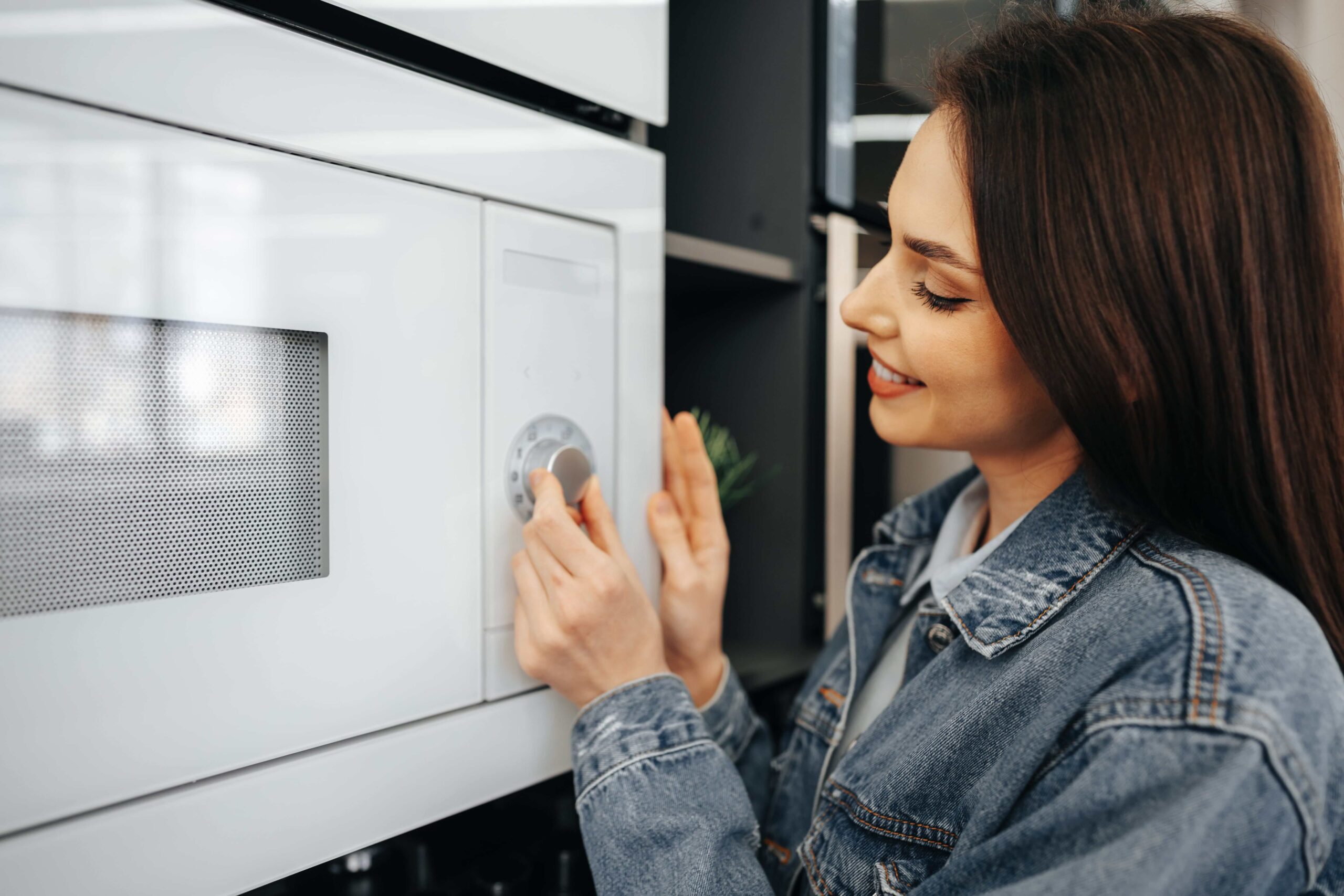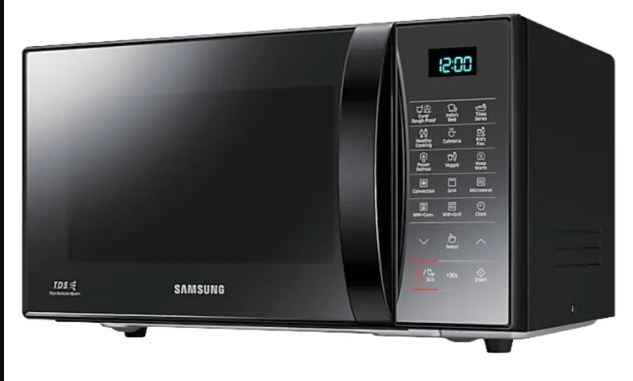Physical Address
304 North Cardinal St.
Dorchester Center, MA 02124

A 700-watt microwave has lower power than a 1000-watt microwave. When choosing between a 700-watt and a 1000-watt microwave, it’s important to consider the power output as it directly affects the cooking time and efficiency.
A 700-watt microwave is typically less powerful than a 1000-watt microwave, resulting in longer cooking times and potentially less evenly heated food. However, a lower wattage microwave may be sufficient for basic cooking tasks such as reheating leftovers or making popcorn.
On the other hand, a 1000-watt microwave offers faster cooking times and greater versatility for cooking various types of dishes. Ultimately, the choice between a 700-watt and a 1000-watt microwave depends on your specific needs and preferences.
When it comes to finding the perfect microwave for your kitchen, one important factor to consider is the wattage. Microwave wattage refers to the amount of power the microwave uses to cook and heat food. While there are various wattage options available, the most common ones are 700 watts and 1000 watts.
Microwave wattage is the measurement of how much energy a microwave uses to generate heat and cook food. It represents the microwave’s power output, with higher wattages indicating more power and faster cooking times. The wattage of a microwave can usually be found on a label inside the microwave, on the back, or side.
The wattage of a microwave plays a crucial role in determining how quickly and efficiently it can cook or heat your food. Higher wattages result in faster cooking times, while lower wattages may require more time to achieve the desired level of cooking. Therefore, understanding the wattage of a microwave is essential for ensuring your cooking needs are met.
The wattage of a microwave directly impacts its performance and cooking capabilities. Here’s how:
Considering these factors, it’s worth evaluating your cooking habits, needs, and preferences to determine the appropriate wattage for your microwave. Whether you choose a 700-watt microwave or a 1000-watt microwave, understanding the wattage ensures you make an informed decision to meet your cooking requirements.
When it comes to microwaves, power plays a crucial role in determining the cooking time and efficiency of the appliance. In this blog post, we will be exploring the capabilities of a 700 watt microwave. We’ll dive into the cooking times for different foods in a 700 watt microwave, and discuss the pros and cons of using one. So whether you’re a student living in a dorm room or a small family looking for a budget-friendly option, understanding the power versus cooking time of a 700 watt microwave can help you make an informed decision.
While a 700 watt microwave may have a lower power rating compared to higher-end models, it can still deliver satisfactory cooking and reheating results. The lower power requires a bit more time, but it offers advantages in terms of energy efficiency and cost-effectiveness. Additionally, a 700 watt microwave is typically more compact and takes up less space on your kitchen counter.
When it comes to cooking with a 700 watt microwave, it’s important to keep in mind that the cooking times will be slightly longer compared to higher wattage models. However, with some adjustments and proper planning, you can still achieve delicious results. Here is a breakdown of approximate cooking times for different food items:
| Food Item | Approximate Cooking Time |
|---|---|
| Potato (medium-sized) | 5-7 minutes |
| Rice (1 cup) | 10-12 minutes |
| Frozen vegetables (1 cup) | 8-10 minutes |
| Microwave popcorn (1 bag) | 2-3 minutes |
Using a 700 watt microwave comes with its own set of advantages and limitations. Let’s take a look at the pros and cons:
So if you’re looking for a budget-friendly microwave that can still deliver satisfying cooking results, a 700 watt microwave can be a great option for you. Just be mindful of the slightly longer cooking times and consider the limitations it may have when it comes to larger meal preparations. Ultimately, it all depends on your specific needs and preferences.
When it comes to purchasing a microwave, the wattage is an important factor to consider. The wattage determines how powerful the microwave is and can significantly impact its cooking capabilities. In this article, we will explore the power of a 1000 watt microwave and its effect on cooking time. We will delve into the cooking times for different foods and discuss the pros and cons of using a 1000 watt microwave. So, let’s dive right in and discover the benefits and considerations of this high-powered kitchen appliance.
A 1000 watt microwave is a powerhouse in the kitchen. With its high wattage, it can quickly and efficiently cook or heat up your food. This level of power allows for faster cook times, making it an ideal choice for those who are always on the go or have limited time to spend in the kitchen. Whether you want to defrost meat, melt butter, or cook a full meal, a 1000 watt microwave can handle it with ease.
One of the main advantages of a 1000 watt microwave is its ability to reduce cooking times. Whether you’re reheating leftovers or preparing a quick meal, a higher wattage can significantly speed up the process. Here are some approximate cooking times for common foods in a 1000 watt microwave:
| Food | Cooking Time (in minutes) |
|---|---|
| Instant Ramen | 3-5 |
| Microwave Popcorn | 2-3 |
| Baked Potato | 8-12 |
| Steamed Vegetables | 4-6 |
These are just general estimates, and cooking times may vary depending on the quantity and size of the food. Always refer to the microwave’s user manual for specific guidelines and adjust the cooking time accordingly.
Using a 1000 watt microwave has its advantages and considerations. Let’s take a look at the pros and cons:
Pros:
Cons:
Now that you understand the power of a 1000 watt microwave and its effect on cooking time, you can make an informed decision on whether it is the right choice for your kitchen. Remember to consider your cooking needs, budget, and available space to find the perfect microwave that suits your lifestyle.
When it comes to choosing a microwave, wattage is an important factor to consider. The wattage of a microwave determines how powerful it is and how quickly it can cook or heat up your food. Two common options available in the market are the 700-watt and 1000-watt microwaves. Both have their own advantages and drawbacks, so it’s crucial to evaluate your specific needs and preferences before making a decision.
One of the key factors to consider when choosing between a 700 and 1000-watt microwave is energy efficiency. A lower wattage microwave, such as a 700-watt model, uses less electricity to operate compared to a 1000-watt microwave. This means that over time, you may be able to save on your electricity costs with a lower wattage model.
Moreover, a lower wattage microwave usually takes longer to cook or heat up your food. Despite the longer cooking time, it can be more energy-efficient for certain cooking tasks. For instance, if you frequently cook or reheat small portions, a 700-watt microwave may be sufficient and provide you with potential cost savings as well.
Your cooking needs and preferences play a crucial role in determining the ideal microwave wattage for you. If you primarily use your microwave for simple tasks like heating up leftovers or making popcorn, a 700-watt microwave should be sufficient. However, if you often cook or defrost larger food items, then a 1000-watt microwave will offer faster and more efficient results.
It’s important to note that higher wattage microwaves are typically more versatile and can handle a wider range of cooking tasks. If you enjoy experimenting with different recipes or have a busy lifestyle that requires quick meal preparation, a 1000-watt microwave may be better suited to meet your cooking needs and preferences.
Another significant factor to consider when choosing between a 700 and 1000-watt microwave is the available space in your kitchen and your budget. A smaller 700-watt microwave is suitable for compact kitchens or limited countertop space. On the other hand, a 1000-watt microwave may require more counter space due to its larger size and more powerful cooking capabilities.
In addition to space, your budget is also an important consideration. Typically, 700-watt microwaves are more affordable compared to their 1000-watt counterparts. Therefore, if you have a limited budget or are looking for a basic microwave without all the advanced features, a 700-watt model might be a more cost-effective option for you.
In conclusion, when choosing between a 700 and 1000-watt microwave, it’s essential to consider factors such as energy efficiency and cost savings, your cooking needs and preferences, as well as space and budget considerations. Assessing these factors will help you make an informed decision that best suits your specific requirements.

Cooking with microwaves has revolutionized the way we prepare meals, offering convenience and quickness in the kitchen. Whether you have a 700 watt microwave or a 1000 watt microwave, understanding how to maximize its performance is key to achieving delicious results. In this blog post, we will explore some cooking tips and tricks that will help you unleash the power of your microwave, ensuring that each meal is cooked to perfection.
A 700 watt microwave may have slightly lower power compared to its 1000 watt counterpart, but that doesn’t mean it can’t deliver satisfying meals. By following these tips, you can make the most out of your 700 watt microwave:
A 1000 watt microwave offers greater power, allowing for faster cooking times. Take advantage of this higher wattage by implementing these tips:
Cooking times can vary depending on the wattage of your microwave. To ensure your meals are cooked to perfection, adjust the cooking times accordingly:
| Microwave Wattage | Adjustment Factor |
|---|---|
| 700 Watts | 1.4 Times |
| 1000 Watts | 1 Times |
For example, if a recipe calls for 5 minutes of cooking time in a 1000 watt microwave, you would need to adjust the time to approximately 7 minutes when using a 700 watt microwave to achieve similar results.
By following these cooking tips and tricks, you can make the most out of your microwave, whether it’s a 700 watt or a 1000 watt model. Experiment with different recipes and techniques, and unleash the full potential of your microwave’s power to create delicious meals in no time.
Frequently Asked Questions Of 700 Watt Microwave Vs 1000
Yes, a 700-watt microwave is powerful enough for basic cooking tasks and reheating food. It can handle most common food items, but may take a little longer to cook compared to more powerful microwaves.
To convert microwave cooking times from 1000 to 700, simply reduce the cooking time by approximately 30%.
A 700-watt microwave is typically a compact size, measuring about 18 inches in width, 10 inches in height, and 14 inches in depth.
Yes, there is a difference between an 800-watt and a 900-watt microwave. The wattage determines the cooking power, with a higher wattage providing faster and more efficient cooking. So, the 900-watt microwave will cook food slightly faster than the 800-watt microwave.
Choosing between a 700 watt and 1000 watt microwave depends on your specific cooking needs. While a 1000 watt microwave may offer faster cooking times and more versatility, a 700 watt microwave can still serve you well if you prioritize energy efficiency and affordability.
Consider factors like your budget, cooking habits, and the types of meals you typically prepare to make an informed decision. Ultimately, whether it’s a 700 watt or 1000 watt microwave, investing in a high-quality appliance will enhance your cooking experience and convenience.